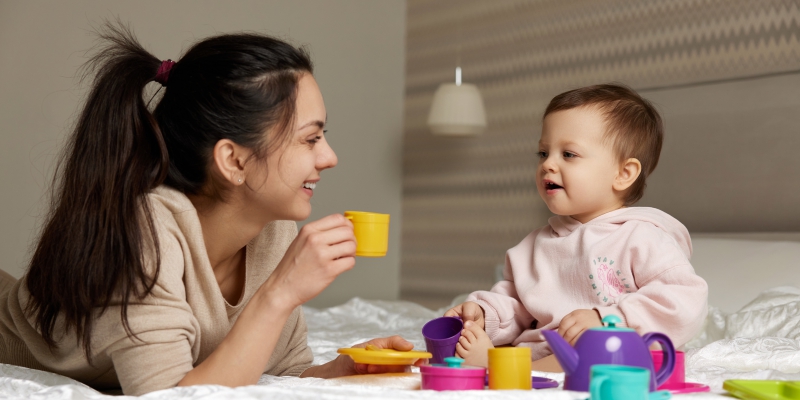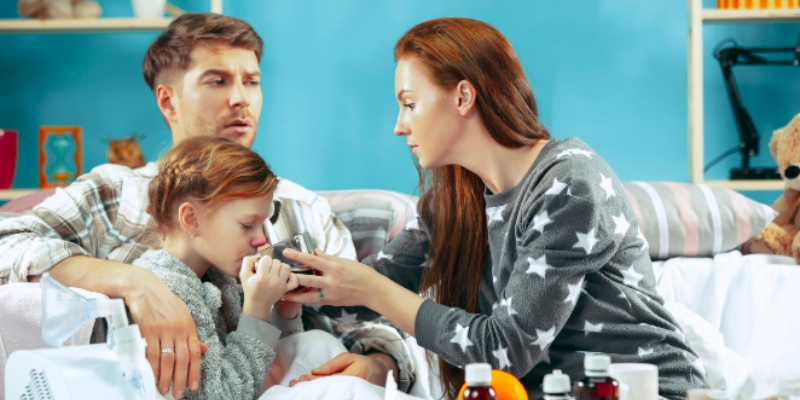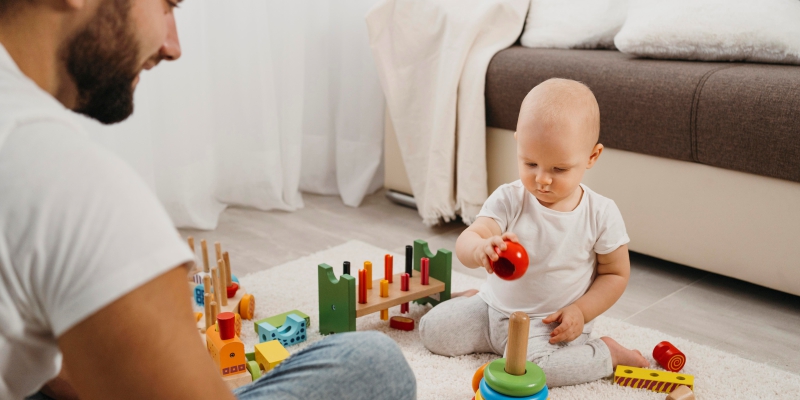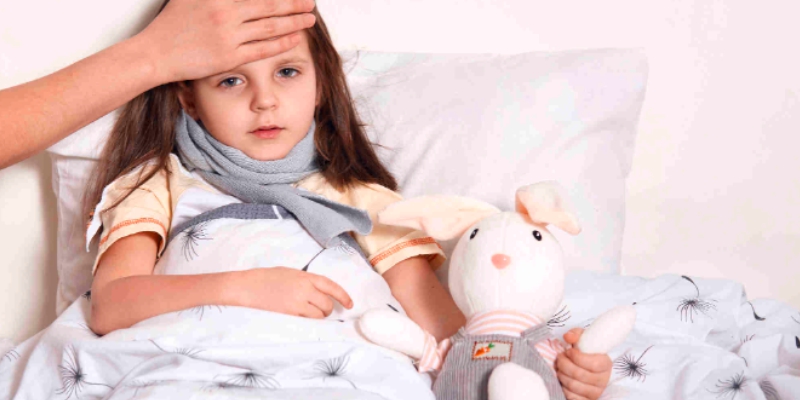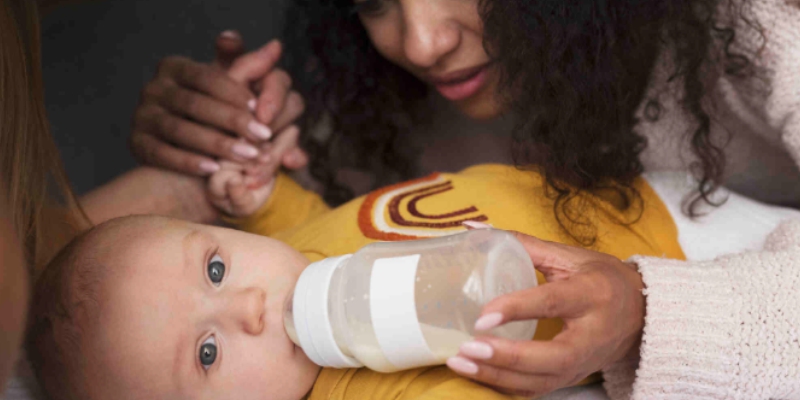Author: Dr. Mandavi Rai, Motherhood Hospital, Noida
Endometriosis Understanding, Diagnosing, and Managing the Condition
Endometriosis is a medical condition that affects millions of women worldwide, yet it remains widely misunderstood and underdiagnosed. At Motherhood Hospital, we strive to raise awareness about this condition and offer expert care to women suffering from it. As an OB-GYN, I want to shed light on endometriosis, its symptoms, impact, diagnosis, and management options, empowering women to understand their health better and seek timely treatment.
What is Endometriosis?
Endometriosis occurs when tissue similar to the lining of the uterus, known as the endometrium, begins to grow outside the uterus. This tissue can implant and grow on the ovaries, fallopian tubes, bowel, or the tissue lining the pelvis. In some rare cases, endometrial-like tissue can be found in other parts of the body.
Each month, during the menstrual cycle, the endometrial tissue inside the uterus thickens, breaks down, and sheds. However, the tissue growing outside the uterus does not have an outlet to exit the body, leading to irritation, inflammation, and scarring. This can result in a wide range of symptoms, most commonly severe pelvic pain and infertility.
Symptoms of Endometriosis
Endometriosis symptoms can vary from mild to severe and may include:
- Pelvic pain: This is the most common symptom, often described as cramp-like or sharp. Pain usually worsens during menstruation but can also occur at other times of the month.
- Heavy or irregular periods: Women may experience very heavy bleeding, spotting between periods, or irregular menstrual cycles.
- Pain during intercourse: Pain during or after sex is a common complaint.
- Painful bowel movements or urination: This typically occurs during menstruation when endometrial-like tissue affects the bowel or urinary tract.
- Infertility: Up to 30-40% of women with endometriosis may struggle with infertility.
- Other symptoms: These can include fatigue, bloating, nausea, and gastrointestinal issues.
It is important to note that the severity of symptoms does not always correlate with the extent of the disease. Some women may have severe symptoms despite mild endometriosis, while others may have no symptoms despite extensive disease.
Causes and Risk Factors
The exact cause of endometriosis is still not fully understood, but several theories exist:
- Retrograde menstruation: This occurs when menstrual blood flows backward through the fallopian tubes into the pelvic cavity instead of leaving the body. This could lead to the implantation of endometrial tissue outside the uterus.
- Genetics: Endometriosis tends to run in families, suggesting that genetic factors may contribute to its development.
- Immune system disorders: Women with certain immune system problems may be more prone to developing endometriosis.
- Environmental factors: Hormonal imbalances, particularly estrogen, may also play a role in the development of the condition.
While the exact cause remains uncertain, understanding these factors can help in early diagnosis and management.
Diagnosis of Endometriosis
Endometriosis is often underdiagnosed, and the average time to diagnosis is 7-10 years after symptoms first begin. The primary challenge is that its symptoms overlap with other conditions, such as pelvic inflammatory disease, ovarian cysts, or irritable bowel syndrome.
To diagnose endometriosis, a thorough evaluation is required, which includes:
- Medical history: A detailed discussion about symptoms, menstrual history, and family history of endometriosis.
- Pelvic exam: During a pelvic exam, the doctor may feel for abnormal growths or cysts.
- Imaging tests: Ultrasound or MRI may help visualize endometriotic cysts or adhesions, but they are not definitive for diagnosing endometriosis.
- Laparoscopy: The gold standard for diagnosis. This is a minimally invasive surgical procedure in which a camera is inserted into the abdomen to directly view the endometriosis implants. A biopsy can also be taken for further analysis.
Treatment Options for Endometriosis
The treatment of endometriosis varies depending on the severity of the condition, the symptoms, and the patient’s future fertility plans. The goal is to relieve symptoms, reduce the extent of the disease, and improve quality of life.
- Medications:
a. Pain relievers: Nonsteroidal anti-inflammatory drugs (NSAIDs) like ibuprofen can help alleviate mild to moderate pain.
b. Hormonal therapies: These can help reduce or eliminate menstrual periods, thus reducing endometrial growth and pain. Hormonal options include birth control pills, progestins, and GnRH agonists.
c. Aromatase inhibitors: These medications reduce the production of estrogen, slowing down the growth of endometrial tissue. - Surgical treatment:
a. Laparoscopic surgery: In women with severe symptoms or infertility, laparoscopic surgery may be performed to remove endometrial implants, scar tissue, and adhesions.
b. Hysterectomy: For women who do not wish to preserve fertility, removing the uterus (and sometimes the ovaries) may be considered as a last resort, especially in cases where other treatments have failed. - Lifestyle changes and complementary therapies:
a. Diet: A healthy diet rich in fruits, vegetables, and omega-3 fatty acids may help reduce inflammation. Limiting processed foods and red meat may also benefit some women.
b. Exercise: Regular physical activity helps in reducing pain and promoting overall wellbeing.
c. Acupuncture and physical therapy: These alternative therapies may help manage pain for some women.
Fertility and Endometriosis
Endometriosis is one of the leading causes of infertility, and approximately 30-40% of women with endometriosis struggle to conceive. The condition can cause scarring or blockages in the fallopian tubes and ovaries, making it more difficult for the sperm to meet the egg.
However, many women with mild to moderate endometriosis can still conceive with medical treatment or through assisted reproductive technologies such as in vitro fertilization (IVF). In cases where endometriosis is affecting fertility, laparoscopic surgery may be recommended to remove endometrial lesions and improve chances of conception.
Conclusion
Endometriosis is a chronic condition that can significantly impact a woman’s quality of life. It is important for women to be aware of the symptoms and seek early diagnosis and treatment. At Motherhood Hospital, we provide comprehensive care for women with endometriosis, from initial consultation to advanced treatment options. If you are experiencing symptoms or have concerns about endometriosis, don’t hesitate to consult with a specialist to explore your options and improve your quality of life.
By understanding endometriosis and its treatment options, women can take proactive steps towards managing the condition and maintaining their health and well-being. Let’s continue the conversation and work together to overcome the challenges of endometriosis.
Dr. Mandavi Rai is an experienced OB-GYN at Motherhood Hospital, specializing in women’s health, including the diagnosis and management of endometriosis.
FAQ’s
Question: What is endometriosis?
Answers: Endometriosis is a medical condition where tissue similar to the lining of the uterus
grows outside of the uterus. This can cause pain, infertility, and other symptoms, often
affecting a woman’s reproductive health.
Question: What are the common symptoms of endometriosis?
Answers: Symptoms can vary but commonly include pelvic pain, heavy menstrual bleeding,
pain during intercourse, and infertility. Some women may also experience fatigue, nausea, and
digestive problems.
Question: How is endometriosis diagnosed?
Answers: Diagnosis typically involves a pelvic exam, ultrasound, MRI, and sometimes
laparoscopy. A definitive diagnosis is often made through a laparoscopy, where the doctor can
directly view and possibly remove endometrial tissue.
Question: What causes endometriosis?
Answers: The exact cause of endometriosis is not fully understood, but potential factors include genetics, hormonal imbalances, immune system disorders, and retrograde menstruation, where menstrual blood flows backward into the pelvic cavity.
Question: Can endometriosis affect fertility?
Answers: Yes, endometriosis can impact fertility by causing scarring and adhesions that block
the fallopian tubes or affect the function of the ovaries. However, many women with
endometriosis are still able to conceive with proper treatment.
Question: What are the treatment options for endometriosis?
Answers: Treatment options vary depending on the severity of the condition and may include
medication to manage pain and hormonal therapy. In severe cases, surgery to remove
endometrial tissue or even a hysterectomy may be considered


 Toll Free Number
Toll Free Number











